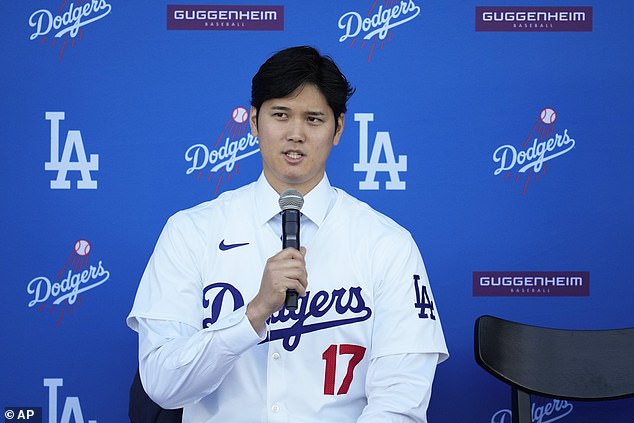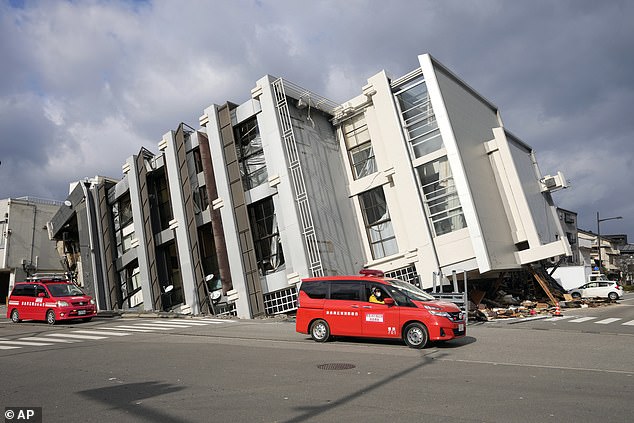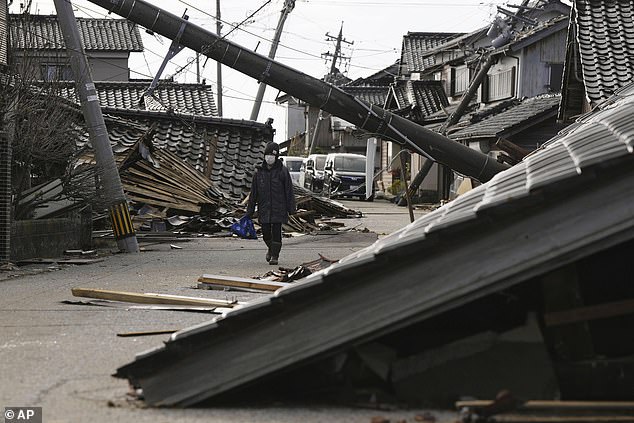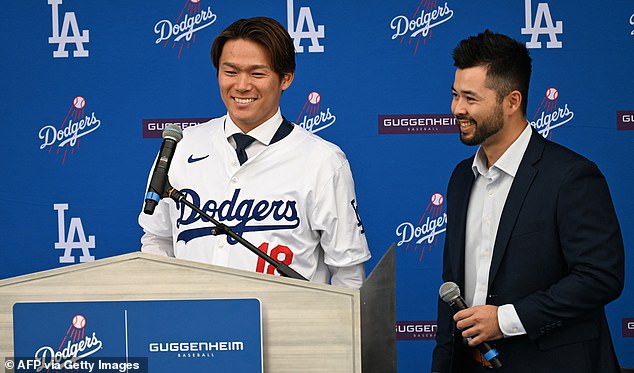Shohei Ohtani and his Dodgers donate more than $1 million to Japan earthquake victims following New Year's Day disaster that killed at least 84 people
- Ohtani recently signed a delayed $700 million deal that will pay him $2 million in 2024
- In addition to Ohtani, LA also added Japanese pitcher Yoshinobu Yamamoto
- READ MORE: Details of Yoshinobu Yamamoto's contract have been revealed
<!–
<!–
<!–
<!–
<!–
<!–
Shohei Ohtani, the Los Angeles Dodgers and the club's parent company are donating more than $1 million to earthquake victims in Japan, where millions of people are looking to rebuild after the New Year's Day disaster.
Ohtani's “own personal contribution” was not disclosed in the press release, but the Dodgers and Guggenheim Baseball, which owns the team, are donating $1 million.
Technically, that's half of Ohtani's base salary for the upcoming 2024 season, but that's only because the two-way sensation's new $700 million deal has been heavily delayed, giving him $68 million annually from 2034 to 2043.
“My hope is that we will continue to come together to support those whose lives have been turned upside down,” Ohtani said of the disaster, which has left dozens of people dead. “I hope for the speedy rescue of missing persons and the reconstruction of the disaster-affected areas.
“Our thoughts are with all of Japan in the wake of this tragedy,” added Ohtani, whose donation will focus on the area around the Noto Peninsula.

Shohei Ohtani recently signed a delayed $700 million deal that will pay him $2 million in 2024


A commercial building collapsed in Wajima on the Noto Peninsula after the earthquake


A woman walks through the rubble of a deadly earthquake in Suzu, Ishikawa Prefecture
Ohtani, of course, is one of two elite Japanese players to sign with the Dodgers this offseason. In addition to the former Los Angeles Angels star, the Dodgers also added Japan's Yoshinobu Yamamoto, who won the 2023 World Baseball Classic with Ohtani in March.
But while Ohtani got a delayed $700 million deal, Yamamoto signed a 12-year, $325 million deal that will pay him a total of $55 million in 2024.
Meanwhile, workers in Japan continue to pull survivors from the rubble.
A woman was carefully pulled from the rubble, 72 hours after a series of powerful earthquakes began shaking Japan's west coast. Despite rescue efforts, the death toll grew to at least 94 people on Friday, and the number of missing was lowered to 222 after rising the day before.
An elderly man was found alive on Wednesday in a collapsed house in Suzu, one of the hardest-hit cities in Ishikawa Prefecture. His daughter shouted, “Daddy, daddy,” as a swarm of firefighters brought him out on a stretcher and praised him for hanging on so long after Monday's 7.6 magnitude earthquake.


In addition to Ohtani, the Dodgers also added Japanese pitcher Yoshinobu Yamamoto (left).
Others had to wait while rescuers searched for loved ones.
Ishikawa officials said 55 of the deaths were in Wajima city and 23 in Suzu, while the others were reported in five neighboring cities. More than 460 people were injured, at least 24 of them seriously.
The University of Tokyo's Earthquake Research Institute found that the sandy coastline in western Japan shifted as much as 250 meters (820 feet) seaward in some places.
The earthquakes caused a major fire in the city of Wajima, as well as tsunamis and landslides in the region. With some routes cut off by the devastation, concerns grew about communities where water, food, blankets and medicine had yet to arrive.
